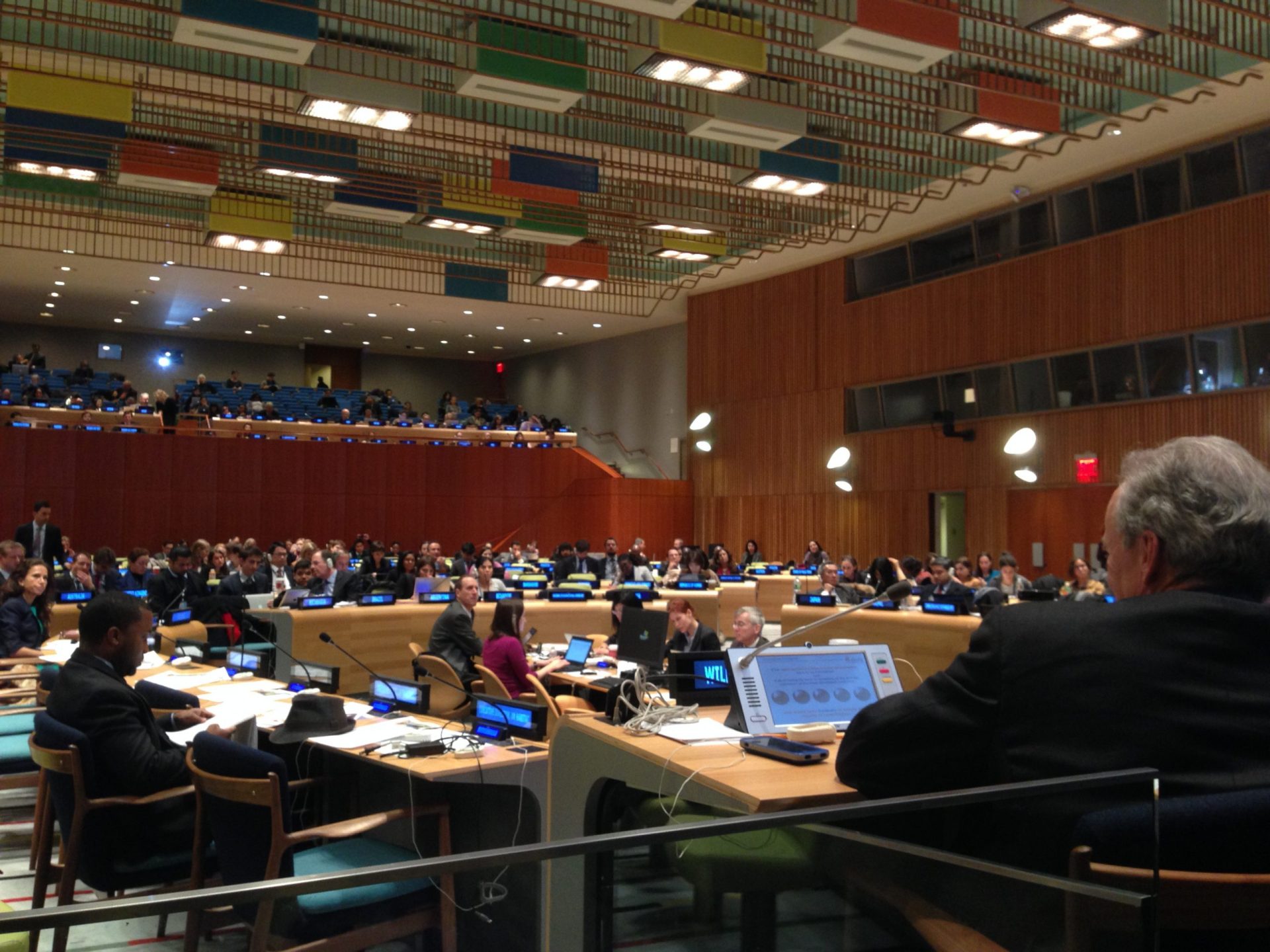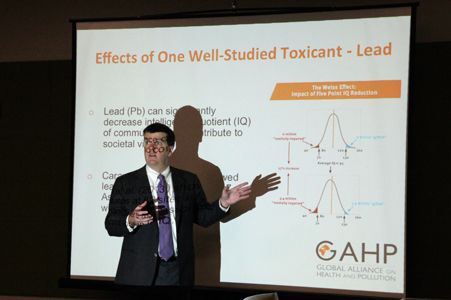

We began 2014 with a message to the U.N., urging action on toxic pollution at the Seventh Session of the Open Working Group on Sustainable Development Goals (SDG).
“The SDGs will set the post-2015 global development agenda,” says Rachael Vinyard, Director of Strategy and Development for Blacksmith Institute, which serves as Secretariat for the Global Alliance on Health and Pollution (GAHP).
“They will determine what issues get funded in the coming 10 to 15 years. So, it is critical that the world’s countries agree that chemicals, waste and toxic pollution should be a focus for the next decade and that solving these issues is key to achieving sustainable development and protecting human health.”
To make the case, Blacksmith advisor Karti Sandilya and Blacksmith founder Richard Fuller spoke on behalf of the GAHP about the connection between pollution and poverty, and global scale of the problem.
About 200 million people around the world in developing countries are exposed to toxic pollution, chemicals and waste… at levels several times what the U.S. EPA and other regulatory agencies consider safe for humans. To some extent this is the unintended consequence of globalization. We’ve shifted manufacturing to lower-cost locations but not always with the adequate pollution controls you have in the developed world. And as you can expect, most of these toxic hotspots are in slum localities. Poor neighborhoods. Never leafy suburbs. So it is also a question of poverty reduction. Most of the 200 million people affected are poor people. — Karti Sandilya, speaking to the U.N. on January 6, 2014. Listen and share his presentation below.
Blacksmith will follow up on SDG negotiations over the course of six meetings to take place between March and July 2014 before the Open Working Group is due to present their proposal to the General Assembly later this year.



